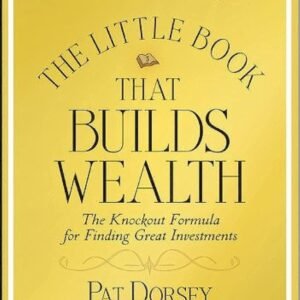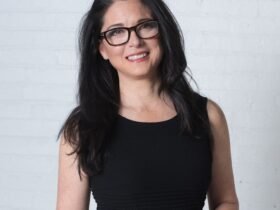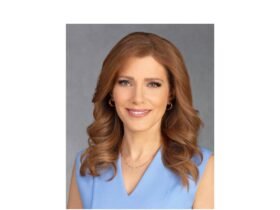Ready to declutter your dollars and build better money habits? Here are ten financial things you’ll never regret throwing away.
Spring is here and it’s not just a time for dusting off shelves or decluttering your closet. It’s also the perfect time to tidy up your finances and build better money habits. Just like that forgotten box under your bed, some money-related things and habits are better off tossed out for good.
Ready to declutter your dollars and build better money habits? Here are ten financial things you’ll never regret getting rid of.
OLD BENEFICIARIES
Have an estate plan? Good! Have you updated your beneficiaries recently? If your answer is no, it’s time to tackle the task. “When bringing on new clients, we are often surprised by how often they have beneficiaries who have already passed away or former spouses,” says Crystal McKeon, a CFP with TSA Wealth Management. “It is very important to check this information once a year or so to make sure you have your money going to the correct person.”
SUBSCRIPTIONS YOU’RE NOT USING
A recent survey shows consumers have an average of 3.3 subscriptions they aren’t using, costing them an average of $32.84 per month. Spring is the perfect time to nix them from your budget – but you have to find them first. “Start with your credit card and bank statements—scan for recurring charges,” suggests Gregory Furer, CEO and founder of Beratung Advisors. “Then, check your phone’s app subscriptions, especially through Apple or Google Play. Don’t forget bundlers like Amazon or your cell phone provider, which often resell services you may not even realize you’re still paying for.”
YOUR OLD BUDGET (SWAP IT FOR BETTER MONEY HABITS!)
Nothing says fresh start like a new budget that helps you develop better money habits. “I advise clients to revisit their budget during this time to ensure it still aligns with their current financial goals,” suggests Nathan Sebesta, CFP and owner of Access Wealth Strategies. “Life changes, and so should your financial plan — regularly checking in keeps spending in sync with your values and long-term objectives.”
If you need a little extra help in the budget-building department, we’ve got you. FinanceFixx, HerMoney’s coaching program, will teach you how to finally feel in control of your cash, develop better money habits that last and find savings you never knew existed. The average FinanceFixxer saves $1,000 + over the course of the program!
401(K)S FROM FORMER EMPLOYERS
If you’re still carrying around old 401(k)s from previous employers, it’s time to give them a new home. “These accounts are limited in their investment choices and you’re still paying administrative fees for these accounts,” says Tom Balcom, a CFP and founder of 1650 Wealth Management. “My advice would be to review all of your statements and consolidate accounts if possible.” One way of doing so? Roll them into an IRA, which could result in saving money and provide you with a more diverse investment portfolio.
YOUR FEAR OF INVESTING
A recent survey showed that among women who don’t invest, 29% say the fear of losing money is the reason. If you’re hesitant to take the plunge, we’re here to tell you that Wall Street isn’t just for suits and finance bros. With a bit of know-how and the right support, you can navigate the markets like a pro and start making your money work harder for you.
For many women, the most challenging part is taking that first step. InvestingFixx, HerMoney’s women-only investing club, is a great place to start. We’re over 500 strong, and always looking for smart, savvy women to join our ranks and grow their wealth.
CHECKING YOUR PORTFOLIO EVERY DAY
For those who are already investors, now is the time to ditch the habit of looking at your portfolio every day. Experts say doing so can lead to impulsive decisions that undermine your long-term goals. “Frequent portfolio checks can amplify anxiety and trigger overtrading, often resulting in lower returns,” says Elizabeth Scheiderer, a CFP with Signal Tree Financial. “Consider reviewing your investments monthly with a clear purpose, such as assessing market movements to inform your next investment decision. This disciplined approach helps maintain focus on long-term objectives and reduces the influence of short-term market fluctuations.”
BEING BLISSFULLY UNAWARE ABOUT YOUR FINANCES
Are you on cruise control when it comes to your money? It’s time to get in the know. “Knowledge is power and blissful ignorance won’t end up being blissful when you get to retirement age,” says Yesenia Realejo, a CFP with Tobias Financial. “Now is always the time to become aware of your spending and savings so you can make meaningful changes when you have time to change the course of your future retirement.”
OVERSPENDING ON CHILDREN’S ACTIVITIES
The average parent spends about $730 on extracurriculars for their children every year, according to a recent study. We get it – things like piano lessons and summer camp are great, but do our kids really need to be that booked and busy? Nancy Listiawan, CFP and founder of Vera Wealth, says no – and warns parents about the high cost of travel sports. “It is a major time and financial drain,” says Listianwan. “Unless you have maximized your retirement savings and are in stellar financial shape, folks need to set clear boundaries and budgets around how much to spend on youth sports.”
OLD PAPERWORK
Drowning in a pile of paperwork? It’s time to weed through. “Review old documents and shred statements for accounts that no longer exist,” suggests Patti Black, a CFP with Savant Wealth. “Do the same with estate documents. Get rid of old documents that are no longer valid.” PS, here’s a cheat sheet for doing just that and clearing the way for better money habits.
YOUR YOLO MINDSET
It’s time for some tough love. Living in the moment sounds great, but it’s not doing your financial future any favors. Now is the time to build better money habits and strike a happy medium between budgeting for fun and planning for the future. One key? Planning for the unexpected by building up your emergency fund. “Having an emergency fund is critical,” says Pamela Jacobs, CFP and co-founder of Frontier Wealth Strategies. “It protects you from what-ifs, which always come up. Protecting yourself from a “what if” is life-changing.”
MORE ON HERMONEY:
More money news when you need it! Get the latest and greatest updates on all things investing, budgeting, and making money. Subscribe to the HerMoney newsletter.



















Leave a Reply